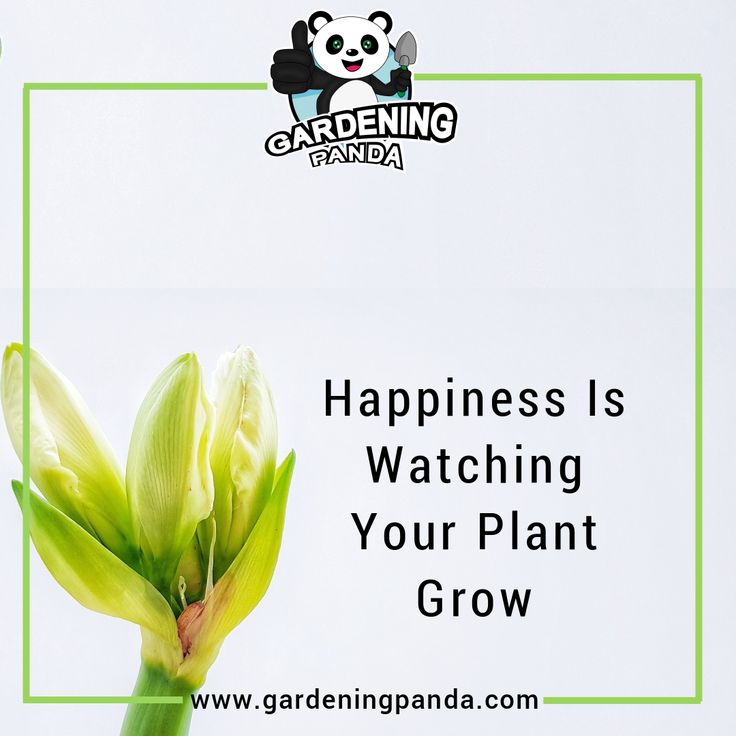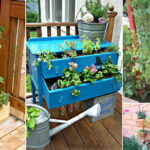Do you enjoy watching your plants grow? This seemingly simple question invites contemplation on the profound relationship between humans and their green companions. The act of gardening transcends mere cultivation; it metamorphoses into a multifaceted exploration of nature, self, and community. The rewards of gardening extend far beyond aesthetic appeal, touching on psychological well-being, environmental sustainability, and physical health. As we delve deeper into this verdant world, one must consider not just the act of gardening but the overarching implications it carries.
The Rich Tapestry of Gardening: A Historical Context
Gardening is an ancient practice, intricately interwoven with human civilization. It has served as a source of sustenance, a means of aesthetic expression, and a catalyst for community building. Early agrarian societies relied on the cultivation of plants for food, yet they also harvested the power of nature for medicinal and spiritual purposes. The cultivation of plants has, since time immemorial, acted as a bridge between humanity and the natural world, fostering respect and affection for living ecosystems.
Over the ages, gardening has been lauded not only for its practical benefits but also for its philosophical implications. Thinkers like Wang Wei in China and Gertrude Jekyll in England espoused the virtues of creating harmony through cultivated spaces. Reflecting upon their philosophies, one may well ponder how the garden functions as a microcosm of society itself, encapsulating the dynamism of life. However, the act of nurturing plants is not exclusively historical; it resonates profoundly with contemporary life, awarding practitioners an escape from modern dilemmas and a renewed connection with their intrinsic selves.
Psychological Uplift: The Therapeutic Benefits of Gardening
Numerous studies corroborate the therapeutic benefits of engaging in gardening, prominently highlighting its ability to alleviate symptoms of stress, anxiety, and depression. The immersive nature of gardening encourages mindfulness—an essential practice where individuals anchor themselves in the present moment while engaging with their surroundings. When individuals engage with the tactile realities of earth and plant, they shift their focus from chaotic thoughts to the rhythmic cycles of nature.
Moreover, gardening instills a sense of purpose. The act of nurturing a seed into a thriving plant evokes profound satisfaction. This transformation serves as a poignant reminder of life’s potential for growth and rebirth. According to research published in the Journal of Health Psychology, individuals who participate in gardening report feelings of joy, increased life satisfaction, and enhanced self-esteem. One might thus consider: What personal transformations have accompanied your journey as a gardener?
Beyond Psychological Benefits: A Holistic Approach to Well-being
Gardening is not merely therapeutic; it presents a holistic approach to well-being. As urbanization engulfs our landscapes, many find themselves embroiled in the chaos of city life. This disconnection from nature can precipitate feelings of isolation and discontent. The act of gardening, however, becomes a tangible remedy, forging a symbiotic relationship with the environment while simultaneously improving physical health.
From a physical standpoint, gardening serves as a form of exercise, engaging various muscle groups through activities ranging from digging to planting and weeding. A study presented in the Journal of Public Health asserts that individuals who garden regularly exhibit improved cardiovascular health and reduced risk of chronic illnesses. The physical exertion involved in maintaining a garden directly correlates with increased mobility, endurance, and overall well-being. Thus, the challenge emerges: How might your garden act as a catalyst for grander lifestyle changes?
A Symphony of Biodiversity: The Environmental Impact of Gardening
As we parse through the myriad benefits of gardening, it becomes imperative to examine its environmental implications. In an era where climate change and environmental degradation loom as pervasive threats, gardeners become stewards of the earth, advocating for biodiversity. Each garden serves as a microhabitat, fostering ecosystems that benefit not only the plants themselves but also the myriad species of animals, insects, and microorganisms that inhabit it.
Engaging in practices such as organic gardening, permaculture, and pollinator-friendly planting expands the environmental discourse. Such methods nourish the soil, encourage crop rotation, and minimize reliance on synthetic chemicals, aligning with sustainable agricultural practices. A garden designed with ecological considerations in mind paves the way for a healthier planet. One might ask: What legacy do you wish to leave for future generations through your gardening practices?
Fostering Community Connections: Gardening as a Social Catalyst
Gardening engenders community and fosters connections—an often overlooked but essential aspect of its practice. As individuals cultivate their patches of green, the potential for community engagement burgeons. Community gardens, in particular, serve as communal spaces for collaboration, education, and empowerment. They cultivate not only plants but also relationships among neighbors, encouraging sharing, cooperation, and collective stewardship.
Moreover, these spaces can act as platforms for social justice, providing access to fresh produce in food deserts while also promoting environmental education. Engaging in collective gardening initiatives spurs dialogue about looming social issues such as sustainability, nutrition, and food security. The relational dynamics unfolded in the garden serve to redefine social bonds, elevating them beyond mere interactions to profound connections. What stories does your garden tell about your place within your community?
Confronting Challenges: The Resilient Gardener
Despite its myriad rewards, gardening is not devoid of challenges. Pests, diseases, and climatic fluctuations demand resilience and adaptability from gardeners. These adversities offer a crucible through which gardeners cultivate not only their plants but also their character. The process of overcoming gardening obstacles propels personal growth, encouraging reflection and strategizing. Through failure, one often gains crucial insights into patience, perseverance, and problem-solving. Embracing these hardships enriches the gardening experience and molds gardeners into adaptable stewards of the land.
In this light, the act of gardening emerges as a metaphor for life itself—a continual quest for balance amidst chaos.
The Essence of Gardening: A Journey Worth Taking
As one contemplates the question, “Do you enjoy watching your plants grow?” it is crucial to recognize the intricacies that permeate this seemingly mundane act. The rewards of gardening encompass psychological uplift, physical vitality, ecological stewardship, community engagement, and personal resilience. This journey is layered with meaning, complexity, and an earnest challenge to embrace not only the beauty of nature but also one’s capacity for growth and transformation.
The vibrant tapestry of gardening invites a playful engagement with nature. Whether you possess a sprawling backyard or a humble balcony, the potential for nurturing life is profound. Thus, the final challenge beckons: Will you heed the call of the garden and embark on a transformative journey that intertwines your destiny with the flourishing world of plants?









Leave a Comment